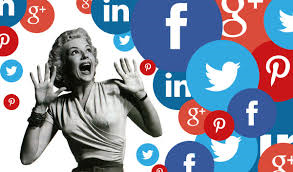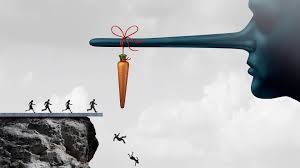
An Antidote to FOMO
I love Facebook. It allows me to keep in touch with people with whom I could easily lose touch, people with whom I would otherwise rarely communicate. That includes friends and relatives in the U.S., Ireland, Colombia and El Salvador, people whose friendship I value highly.
But I understand that like most technological advances, social media have their negatives. For one thing, they can become addictive. People get hooked and become glued to their phones. Others become dependent on social media’s “news” content instead of turning to legitimate and reliable news outlets that reflect a range of views.
But I recently learned from National Public Radio’s program, “Hidden Brain,” of another risk of dependence on social media. Social scientists discussed the results of a study showing that social media make some people unhappy because they are more likely to compare their lives with others. And some have FOMO, the fear of missing out.
More Socially Isolated
“Studies show that people who spend more time on social media sites feel more socially isolated than those who don’t. This might be because of a disconnect between our online lives and our real ones.
“You compare yourself to others more often, you judge yourself, you (ask), “Am I better or worse than my friends? Am I happier? Are they happier?
“Being engaged in excessive social comparison decreased one’s happiness. So it’s not that you think that others are happier than you are, but you need to prove yourself to yourself over and over again, and these social comparison engagement makes you less happy.”
Barbara Kahn, a researcher at the University of Pennsylvania who studies decision-making, thinks that seeing our friends having fun on social media also taps into our social anxiety about belonging to the group, and that produces FOMO.
To some, this may seem like a silly discussion. “Don’t people have enough of a sense of self-worth not to be knocked off-track by something they read on their phones?” we may ask.
No, many people don’t. And that brings us to the question of what accounts for a sense of self-worth.
Therapists deal with this issue on a daily basis and are undoubtedly helpful to people with this problem. I’d like to take a stab at it from a “religious” point of view.
Some people say religion instills a sense of guilt that makes people less confident and less sure about their worth, and I’m sure that religion has had that effect on some, similarly to how some antibiotics have negative effects on some people. But modern medicine would be in trouble without antibiotics, and I believe people in our age are in trouble without religion.
Loves Us Unconditionally
Religions such as Christianity and Judaism portray God as a parent who loves us unconditionally, who accepts us despite our failings and defects. There is a no more forceful example of that than in the parable of the Prodigal Son in the Christian Bible.
The father in Jesus’ story sees the son returning home after years of blowing his inheritance in every direction. “But while he was yet a distance,” says the Gospel of Luke, “his father saw him and had compassion, and ran and embraced him and kissed him.”
Despite all the stereotypes of religious people, those who take their faith seriously aren’t envious of someone else’s apparent good fortune or happiness, whether depicted on social media or not. And if they are faithful to their beliefs, they’re not vulnerable to FOMO.
Faith, contrary to the common wisdom, provides a healthy sense of self-worth.





